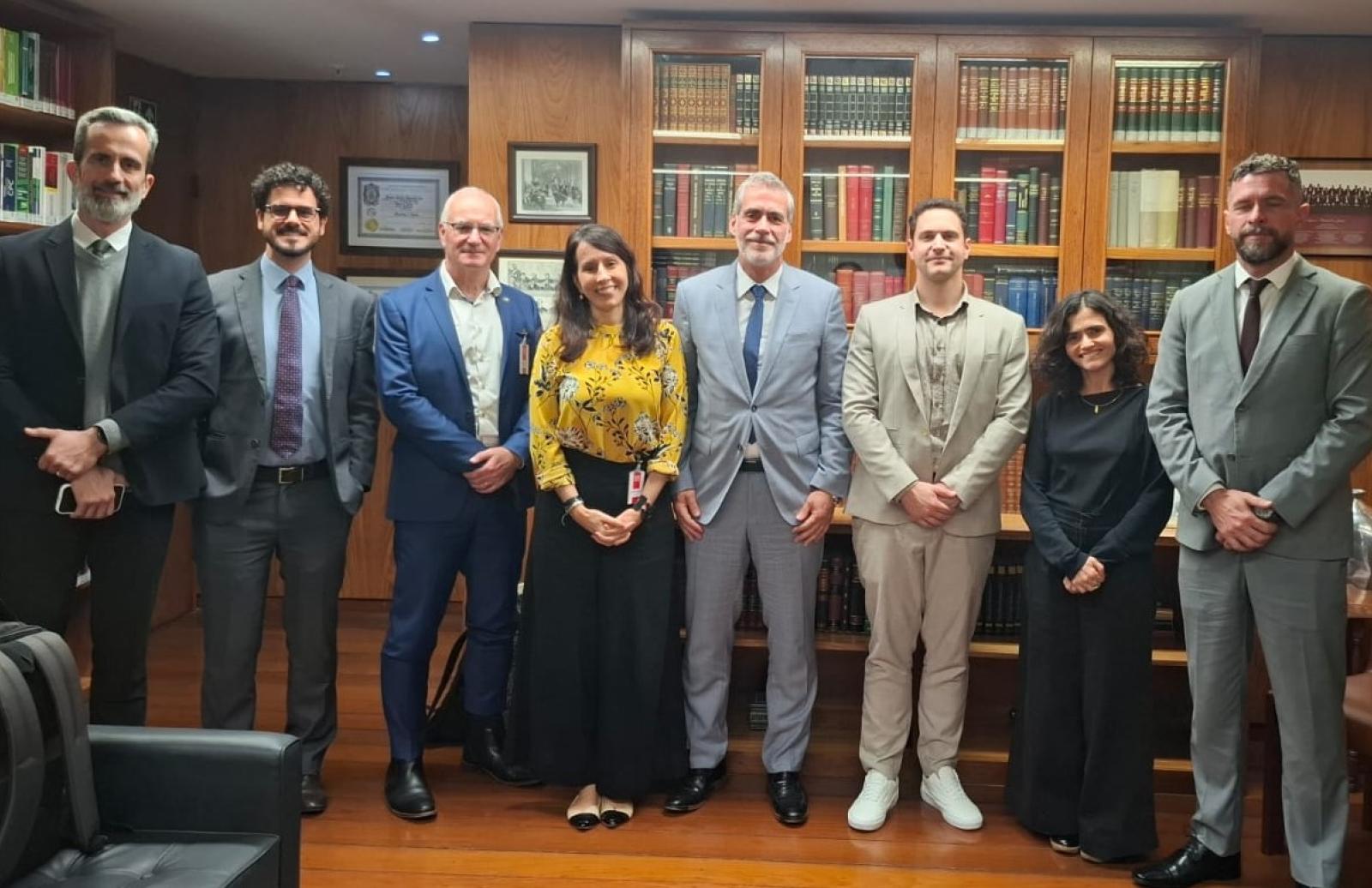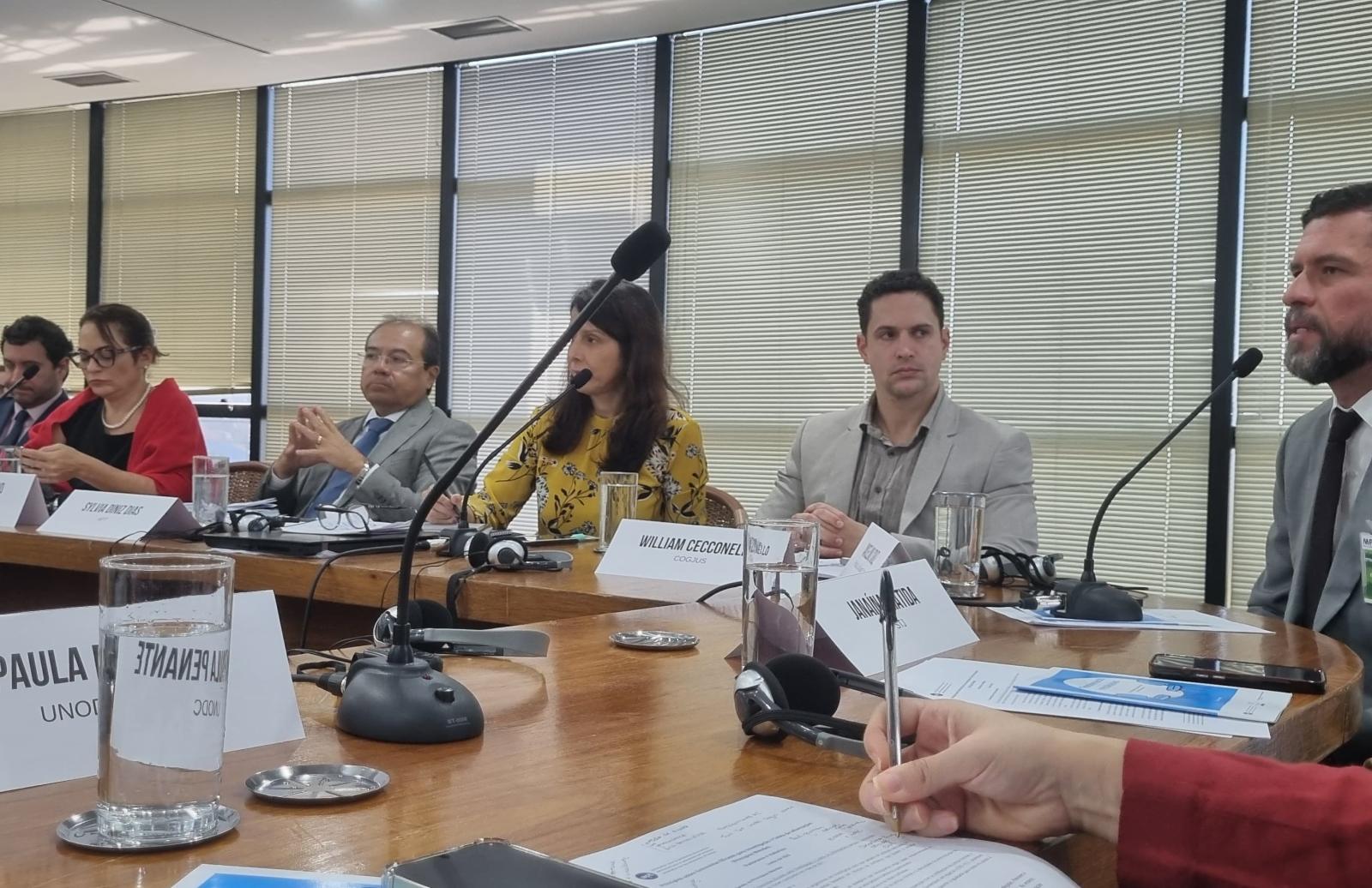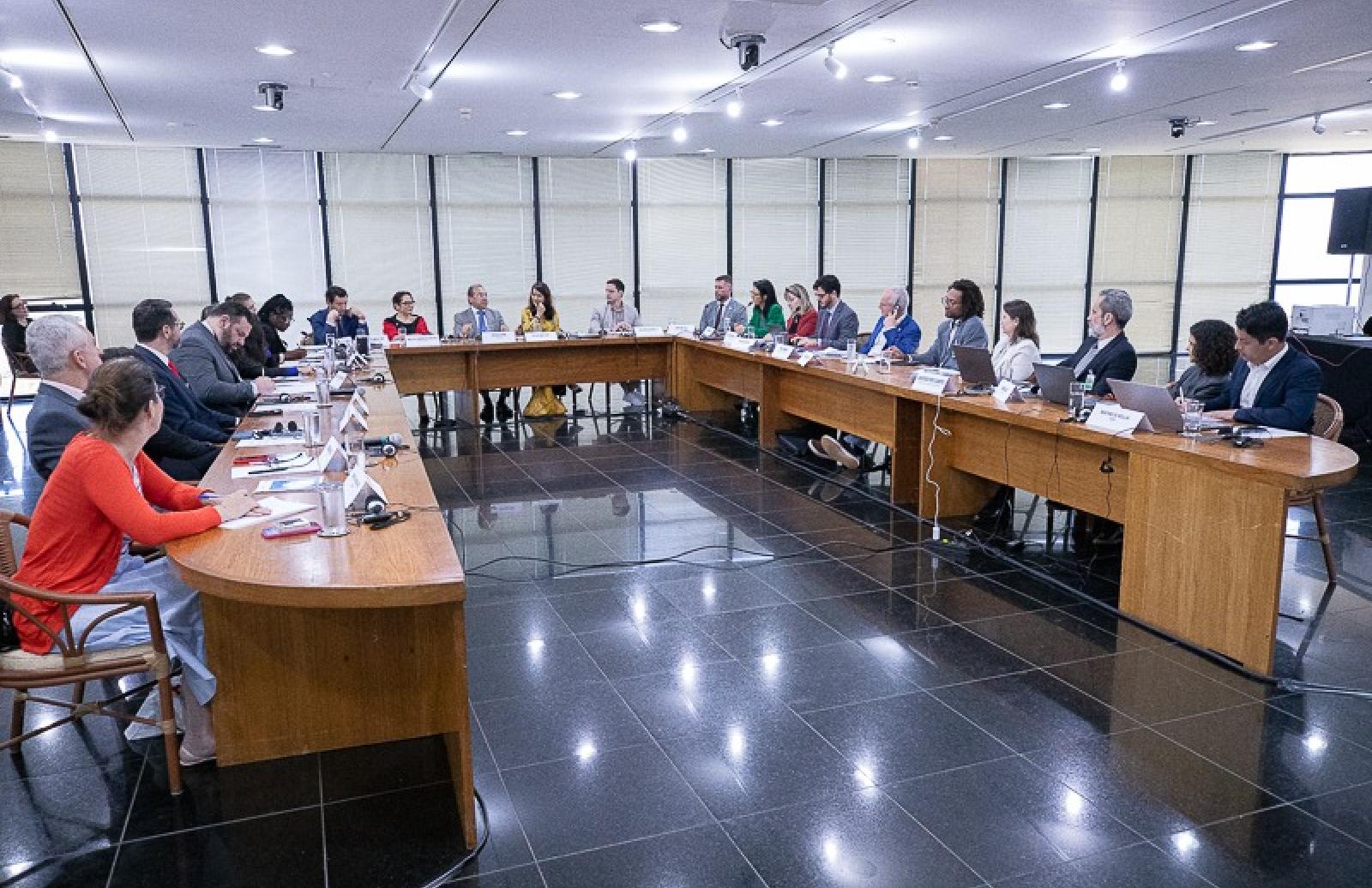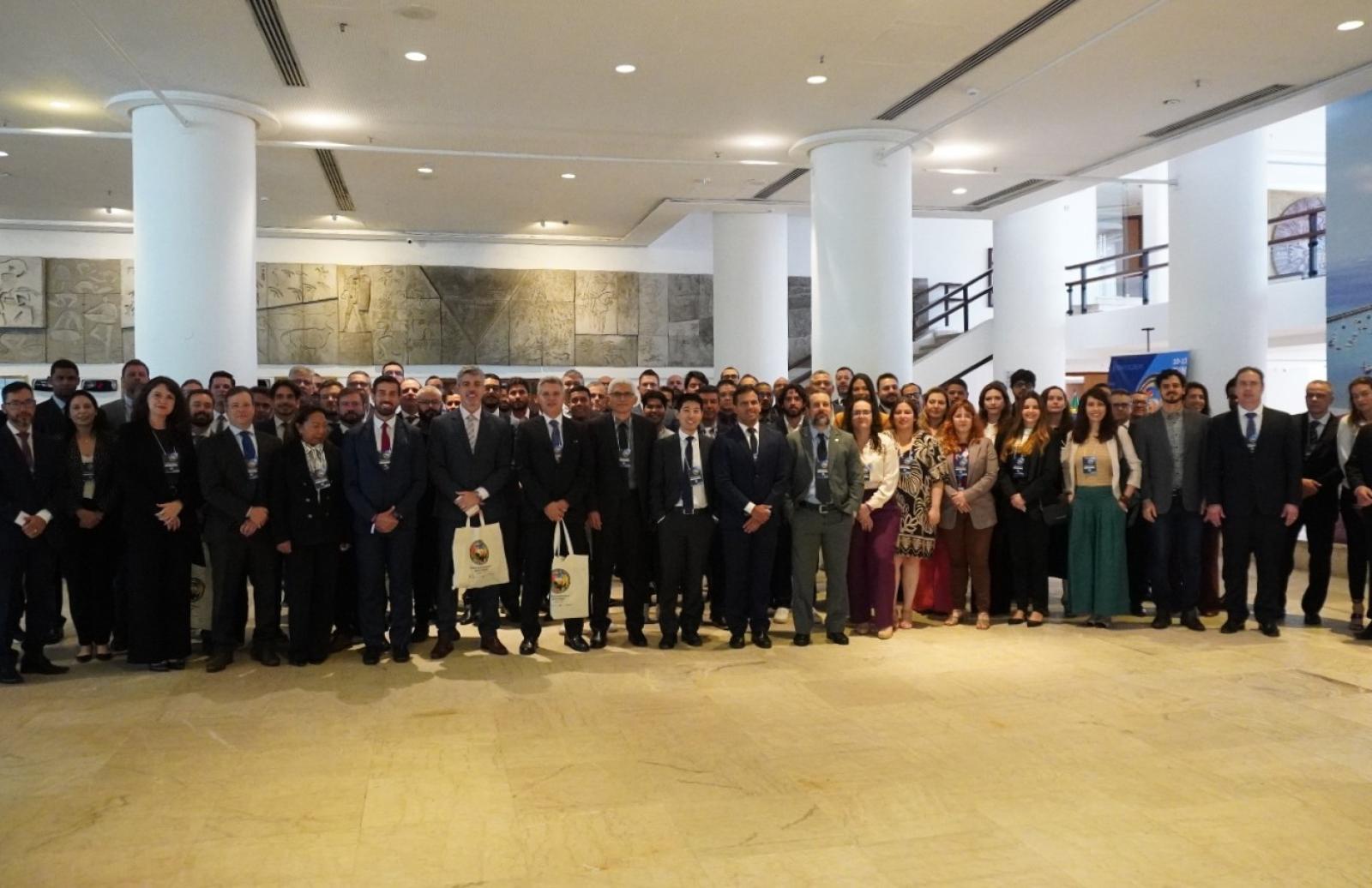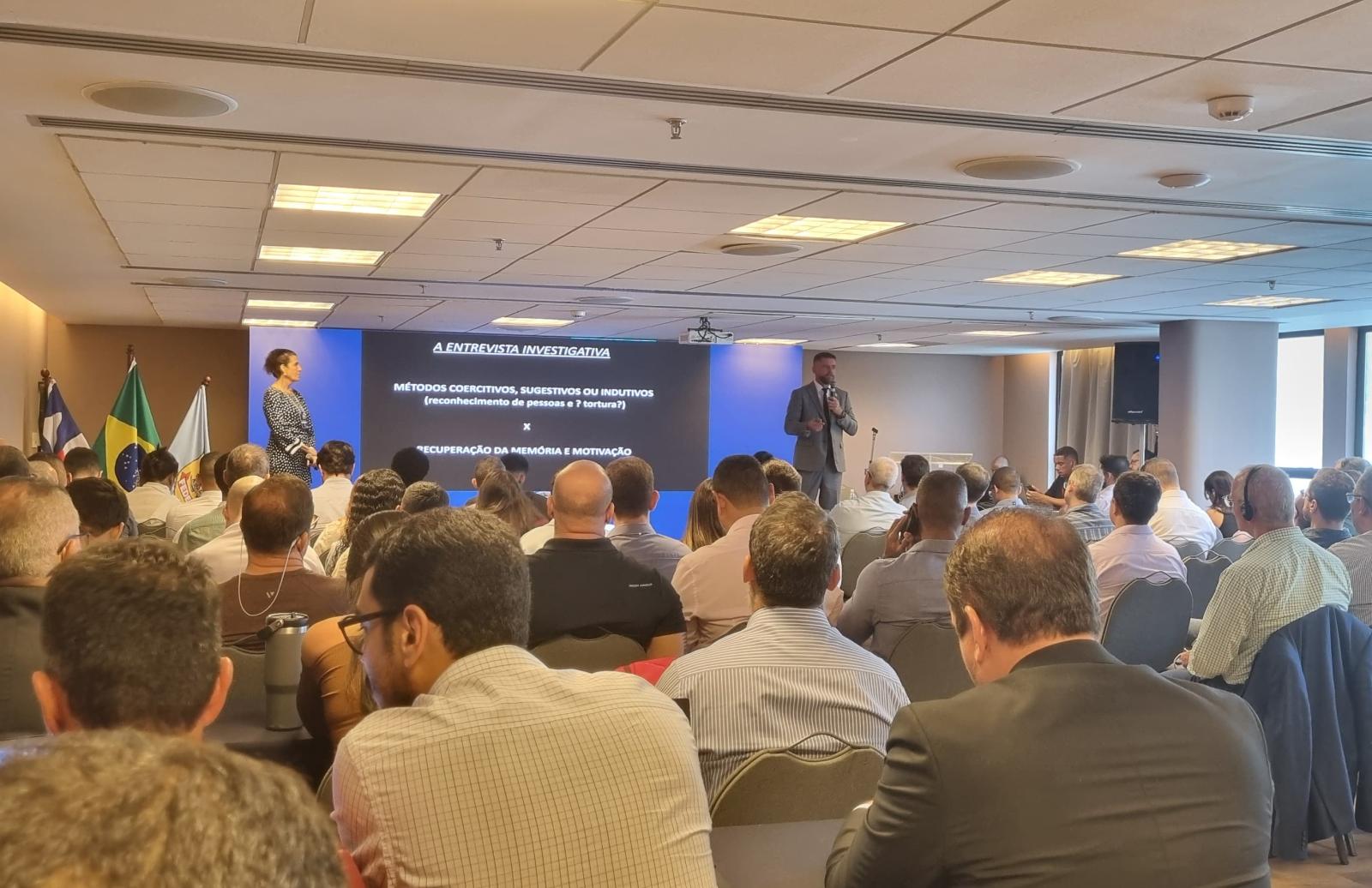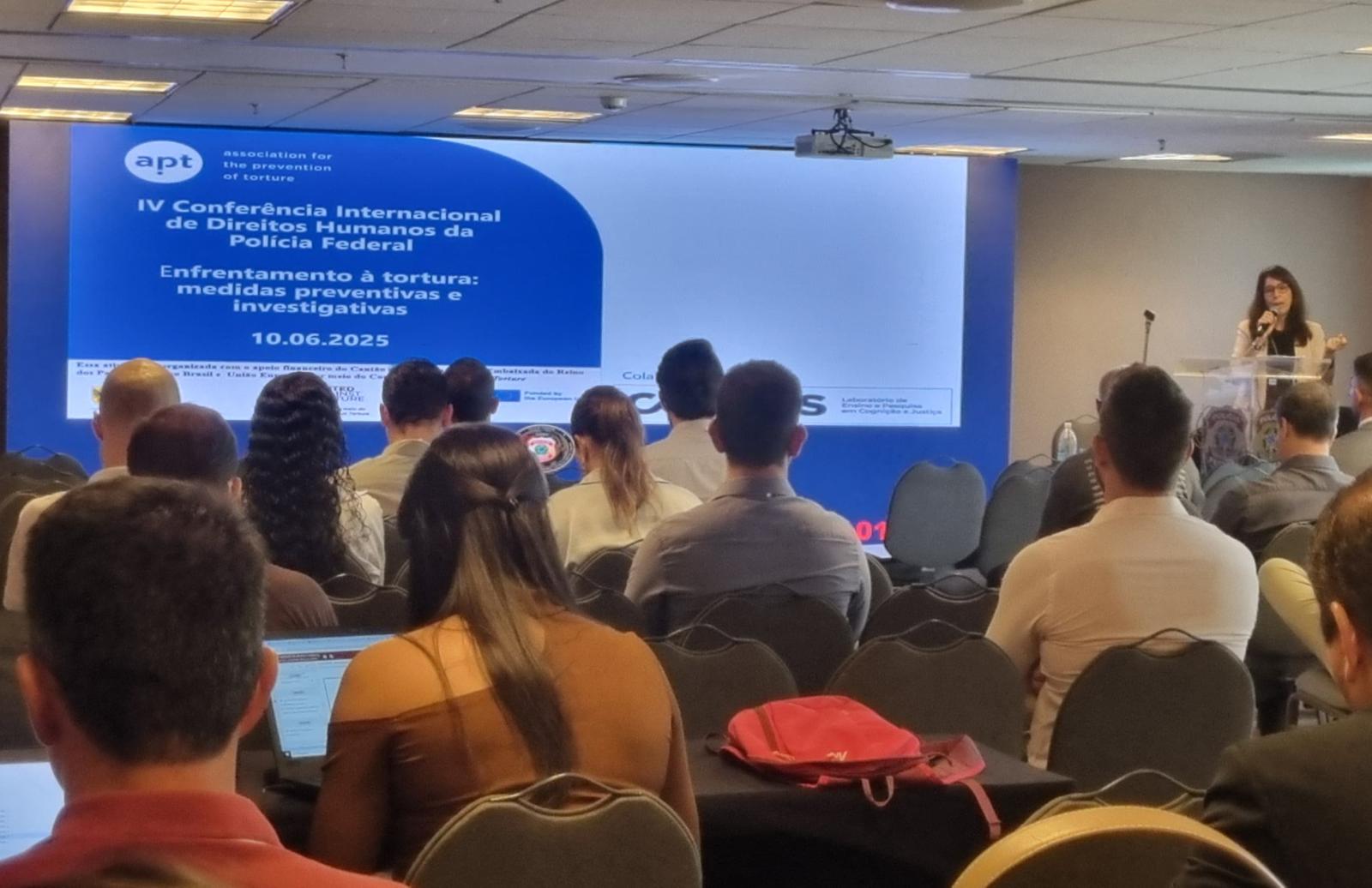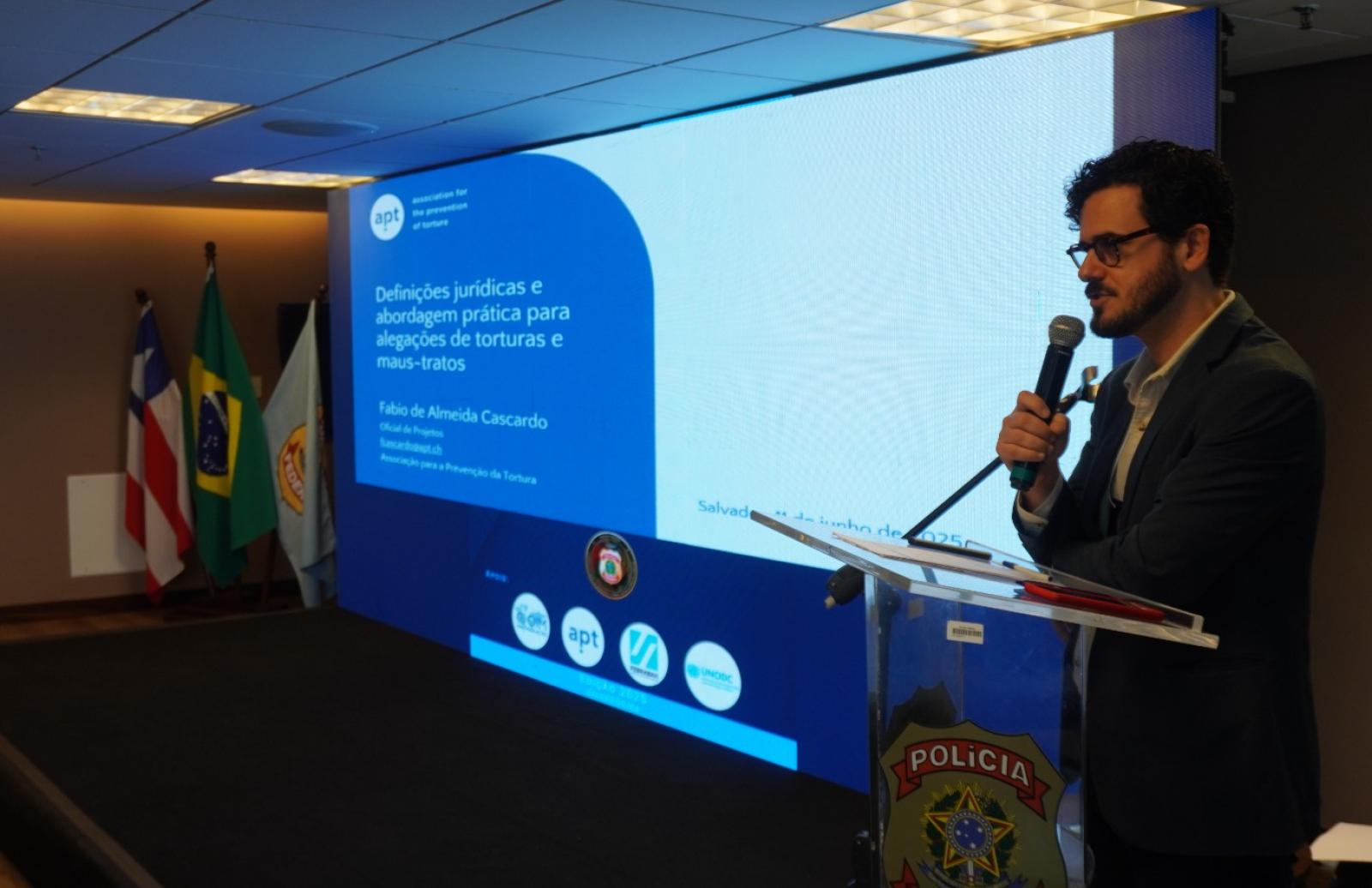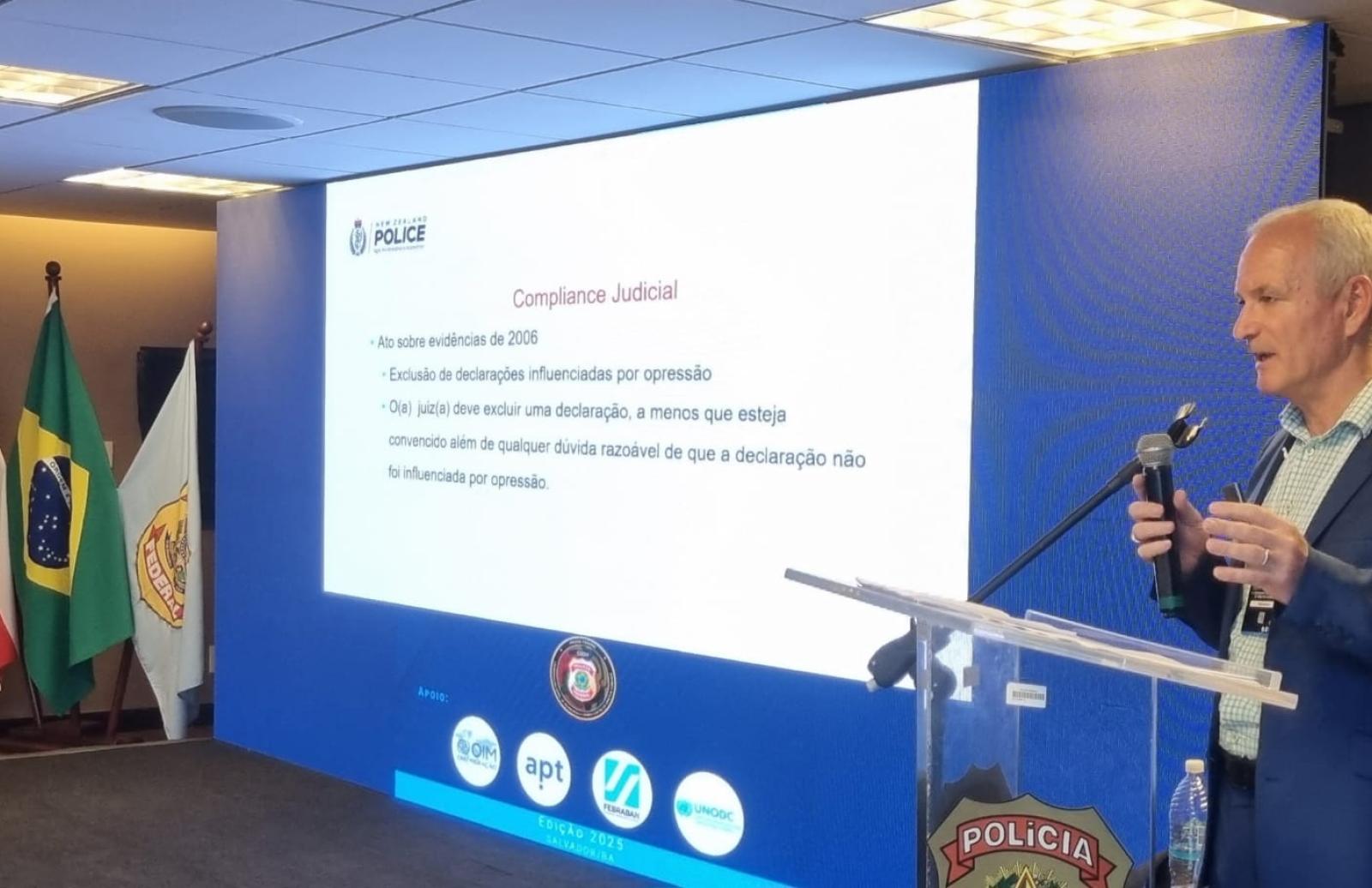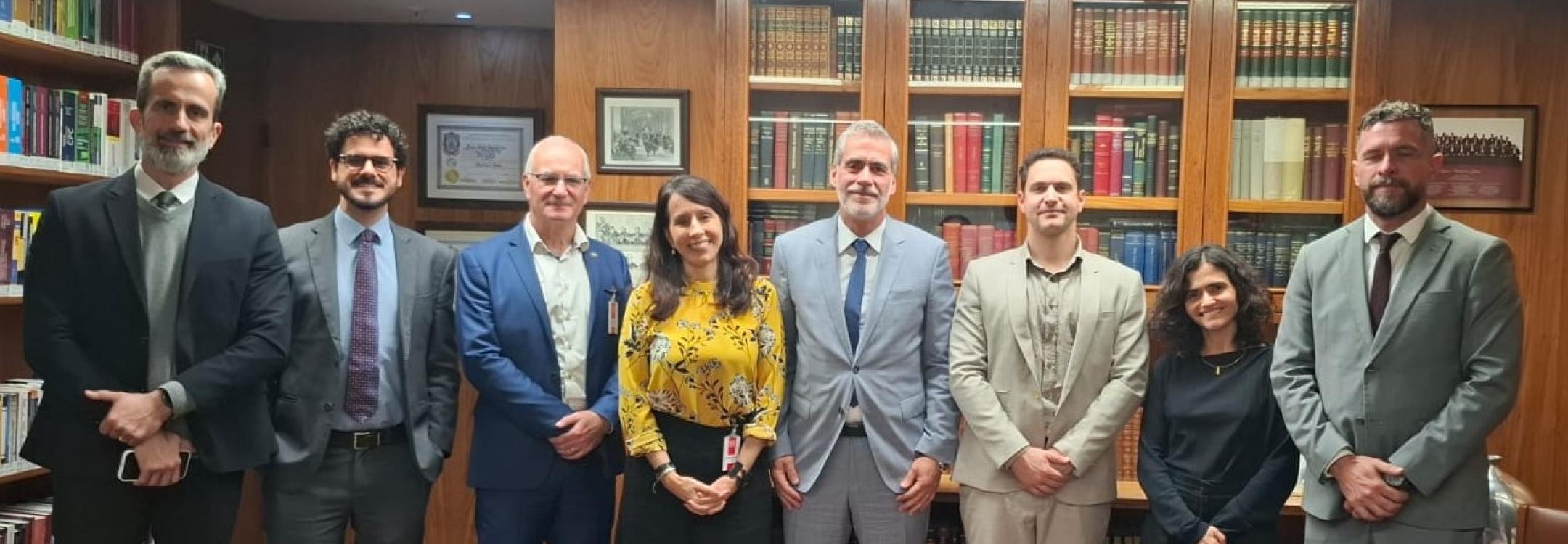
This month, APT led discussions around the implementation of the Principles on Effective Interviewing for Investigations and Information Gathering (the Méndez Principles) at different events in Brazil.
The one-day seminar ‘Combatting Torture: Preventive and Investigative Measures' was part of the 4th International Conference on Human Rights, organised by the Federal Police of Brazil. The event took place on the 11 June 2025, in Salvador, state of Bahia, and more than 100 federal police officers from all 27 Brazilian states attended.
This was the very first time that federal police officers had the opportunity to address the crime of torture and the State’s international obligations to prevent and investigate it, while also learning about the Méndez Principles, as part of their annual conference on human rights. The speakers built on discussions about human memory and information processing, non-coercive rapport-based interviewing methods, legal and procedural safeguards, and showcased operational guidelines in place in the New Zealand National Police and in the Brazilian Civil Police of the state of Santa Catarina.
“Detainees sometimes appear before federal police authorities with injuries claiming to have suffered misconduct during arrest. We must be at the forefront of applying internationally endorsed documents and fulfil our duty to respond to such cases. Police officers are the primary guarantors of human rights,” said Nilton Souza Carvalho Junior, Chief of the Division on the Repression of Hate Crimes, Torture and other Violations against Human Rights of the Federal Police
Later the same week, two activities in Brasília spotlighted potential avenues to implement non-coercive, effective investigation techniques and the adoption of legal safeguards that combined enable the protection of the interviewees’ human rights and ensure the integrity of the entire interview process.
A roundtable meeting at the Federal Prosecutors’ Office brought together 24 representatives from various sectors engaged in transformative change in the Brazilian criminal justice system and law enforcement. The discussion raised various proposals for strengthening human rights within police and judicial procedures – ranging from training programs at police academies to the introduction of regulations, access to legal safeguards, as well as the role of oversight bodies in ensuring Méndez Principles-compliant investigations.
“Criminal investigations should be based on an extremely precise and dedicated approach to producing evidence, ensuring respect for the human rights of those under investigation. We must act as multipliers of this mindset. The Public Prosecutor's Office has an indispensable role in criminal proceedings, not only as the accuser, but also as the guarantor of the rule of law and human rights.”said Nicolao Dino, Head of the Office of the Federal Ombudsman.
Illustrating the transformative impact of the Méndez Principles , a group of experts also met with Judgee Rogerio Schietti at the Superior Court of Justice. His recent rulings featuring the Méndez Principles have been pivotal in deeming confessions obtained through coercion by military police officers, and subsequently validated by judges in the lower courts, to be illegal.
These rulings provide important case law with repercussions across the country and can be found in APT’s compilation ‘United Nations, regional and national documents/jurisprudence referring to the Principles on Effective Interviewing for Investigations and Information Gathering (Méndez Principles)’. Different APT resources on the Méndez Principles were recently translated into Portuguese:
E-learning course ‘Introduction to the Principles on Effective Interviewing for Investigations (Méndez Principles)’ at APT’s Torture Prevention Village
Steering Committee’s Co-chairs statement on Upholding the Added Value of the Méndez Principles, of 1 May 2025
The Principles are also available in Portuguese and different materials in other languages can be found on the APT dedicated page and on the official repository of the Principles.
‘We are inspired by our partners in Brazil who are working to ensure that effective, ethical and human rights-based information gathering methods are in place as part of building a fair criminal justice system in the country,”, stressed Sylvia Dias, APT Representative in Brazil.
The APT thanks all those who attended the events to share their critical reflections paving the way for the implementation of lawful, scientific and ethically oriented practices in effective interviewing.
We also express our gratitude to the Laboratory of Teaching and Research in Cognition and Justice (Cogjus), which collaborated with us on this insightful series of activities, and the Office of the Federal Ombudsman for hosting the roundtable in their headquarters”.
